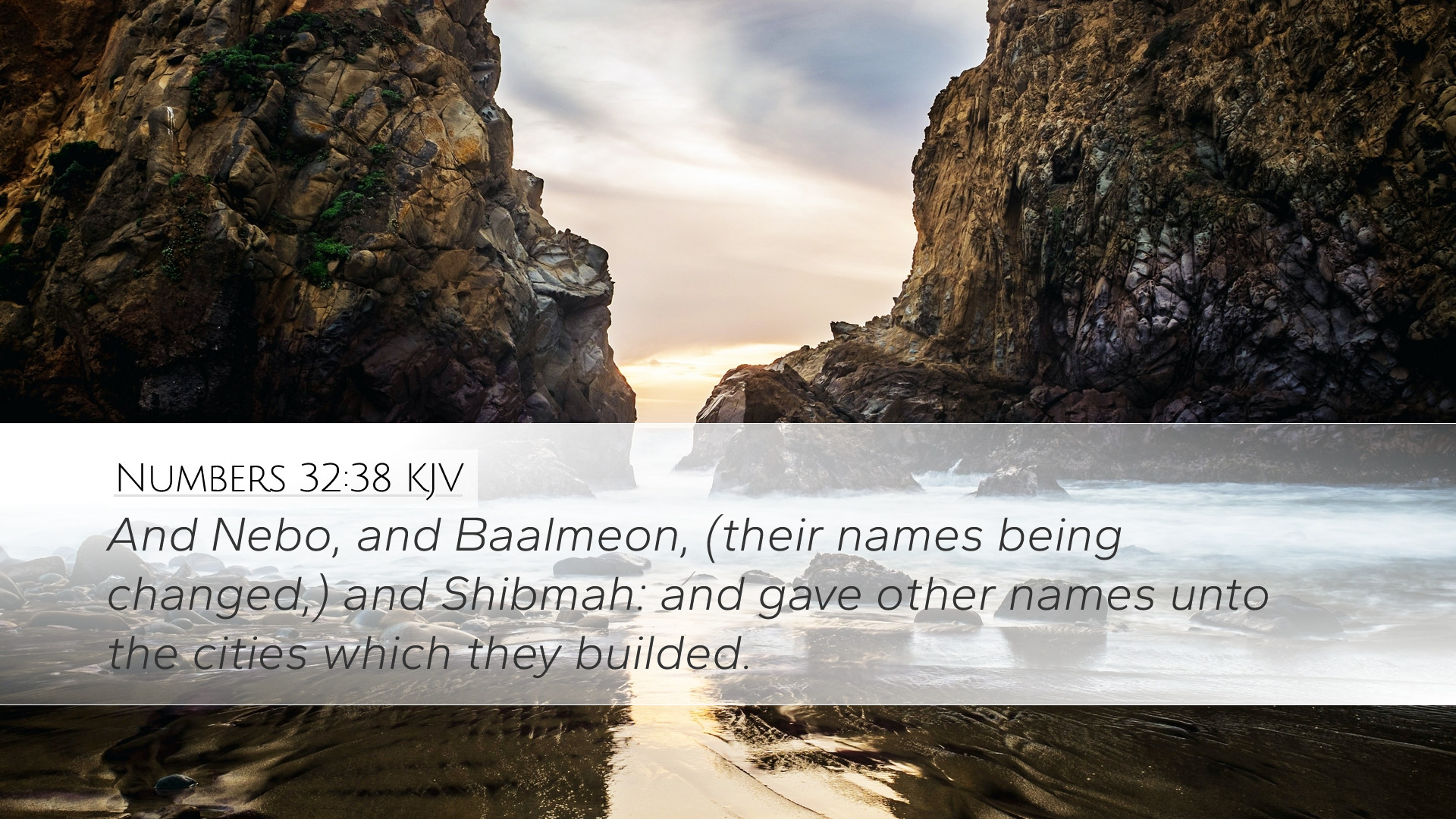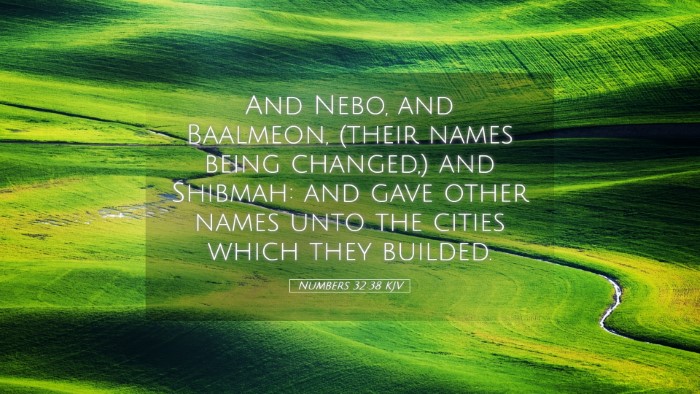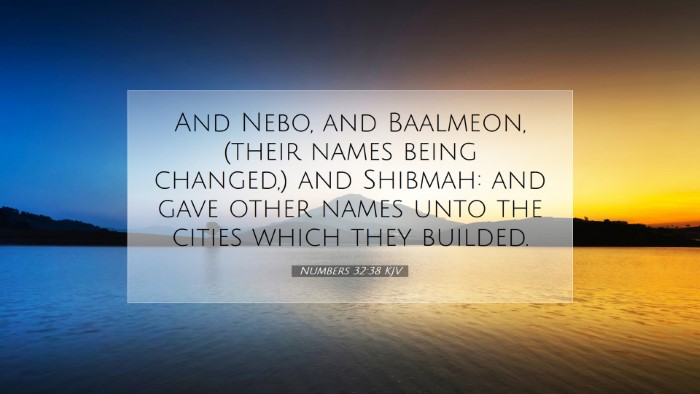Commentary on Numbers 32:38
Verse: Numbers 32:38 - "And Nebo, and Baal-meon (their names being changed), and Sibmah: and gave other names unto the cities which they builded."
Introduction
Numbers 32:38 presents a pivotal moment in the narrative of the Israelites during their wilderness journey. This verse is rich in historical context, theological insight, and practical applications for pastors, students, theologians, and Bible scholars. The act of renaming cities signifies transformation, both in a geographical and spiritual sense.
Contextual Analysis
The background of this verse lies in the settlement of the tribes of Reuben and Gad, alongside half the tribe of Manasseh, on the east side of the Jordan River. These tribes expressed a desire to settle in the fertile lands of Gilead instead of crossing over to the Promised Land. Their request was met with both approval and caution (see Numbers 32:1-5).
The Significance of Names
The names of cities like Nebo and Baal-meon carry significant cultural and religious implications. Matthew Henry notes that names in biblical times often reflect worship practices and cultural identities. The renaming of these cities may indicate a break from former pagan associations.
- Nebo: Traditionally associated with the Moabite god of learning and prophesy.
- Baal-meon: A name indicative of Canaanite deity worship, meaning 'the lord of the habitation.'
- Sibmah: Possibly related to the region's natural beauty and herb cultivation.
Renaming and Transformation
Albert Barnes emphasizes the themes of renewal and redirection inherent in the act of renaming. By altering these city names, the Israelites symbolically reject their past and establish a new identity rooted in their covenant with Yahweh. This is mirrored in the Christian faith, whereby believers are called to shed their old identities and embrace a new life in Christ (2 Corinthians 5:17).
Theological Implications
The act of renaming embodies a deeper theological narrative concerning salvation, empowerment, and divine providence. Adam Clarke elucidates that transformation is often a prerequisite for entering into God’s promises. The tribes' decision to change the cities’ names is reflective of their need to cultivate a new relationship with the land they inhabit, one that is meaningful and aligned with God's intentions.
Divine Providence in Settlement
This passage not only illustrates the people's desire to settle but also highlights God's overarching plan. The territories allotted to Reuben, Gad, and Manasseh were instrumental in God’s providential design for Israel as a nation. These tribes played a crucial role in the future battles and settlement of Israel proper.
Lessons for Today
For pastors and theologians alike, Numbers 32:38 offers profound lessons regarding identity, transformation, and divine calling.
- Identity in Christ: Just as the Israelites renamed their cities, Christians are called to embrace their new identity in Christ, moving away from past associations and living in the light of the Gospel.
- God's Sovereignty: God's hand was evident in the settlements of the tribes of Israel, and His providence continues to be engaged in the lives of believers today.
- Importance of Heritage: Understanding the historical and spiritual significance of names and places can encourage believers to embrace their spiritual heritage and legacy.
Conclusion
Numbers 32:38 invites us to reflect on our own journeys of faith. The process of renaming cities reflects deeper truths about change, renewal, and God's purpose. As we engage with Scripture, may we seek to understand the depth of God’s word as it applies to our lives, recognizing how we, too, are called to new identities, new beginnings, and a divine purpose.


